(A photograph of Rattan Singh’s father and his assistant, who were traditional dentists and Ayurvedic practitioners, on the streets of the Gumat bazaar in Jammu city.) A family in the northern Indian city of Jammu has the recipe for a rare drug that can painlessly remove a tooth without anesthesia or surgery. As part of an ancient medical heritage, the family has been using this drug for centuries, passing down the recipe for generations. Rattan Singh, who works in a small clinic on a side street of the Gumat Bazaar in Jammu city, is one of the recipe holders.
On a cold January day, Vijay Kumar, age 67, came into Singh’s clinic with an aching tooth. Singh applied his concoction soaked in cotton to the area around the tooth, and within a minute, had it removed.
There was no bleeding and no pain. “I didn’t even know what happened,” Kumar said.
The drug is transparent like water but smells very strong. According to Singh it can catch fire like gasoline. He hasn’t made the drug himself; what he has was made by his grandfather, and he still has about a quart of it left.
Singh’s father and grandfather left him and his four brothers, who also have clinics on the same street, with four remedies older than 100 years, which they are still using. While Singh is still a traditional dentist, his brothers have become dental mechanics, certified by the government.
“Others do possess this drug, but they keep it a secret,” Singh said. He only uses it when a customer requests it, saying he believes it affected his now-deceased father’s eyesight.
History
Singh and his brothers are part of a community of Bhat Sikhs or Bhatras, a community whose ancestors were scholars and priests who lived on the now dry Saraswati River between India and Pakistan.
Brahmin in origin, they became followers of Guru Nanak, who is the grandfather of the Sikh religion. One of Guru Nanak’s followers, ruler Raj Shivnabh, had a grandson who became a poet and scholar. He was called Bhat Rai, or the “Raj of poets” for his literary skill, and the name Bhatras evolved from “Bhat Rai.” Bhat means “bard” in Sanskrit, and the Bhat Sikhs are Sikh bards or scholars.
Today the Bhatras can still be seen in the narrow lanes of the Gumat Bazaar, sitting at small tables with acrylic teeth and old dentures on display to attract clients.
Singh said his father, who came to the region when it was still ruled by a king, also used to practice this way.
“He would sit in the public junction and offer his services to people. Slowly people came to know about him, and we are carrying forward that legacy,” he said, showing an old leaflet that his father used to publicize his services.
Affordable Dental Care
While they mostly work in the open street, don’t wear protective gloves, and some of their tools look like they belong in a carpenter’s shop, many people still come to them because they are affordable and effective.
“I had a client in Delhi. He told another high-ranking officer from Maharashtra [a coastal state about 700 miles southwest of Delhi], and he came all the way looking for me in this lane in Jammu,” Singh said.
To remove an aching tooth, Singh charged a woman only 120 rupees ($2).
Another woman approached Singh to wire her daughter’s teeth. “I went to a private [modern dentist] clinic,” she said. “They asked me for 21,000 rupees ($350).” Singh charged 800 rupees ($13) for the same job.
Unfortunately for Singh, this means he can’t make a living from his practice.
“My father told me not to cheat anyone, so I can’t charge them exorbitant amounts of money,” he said. “Since I cannot charge extra, I cannot survive practicing this only.”
He has started a small electronics business and survives by renting property in the main market nearby.
And it looks as though the practice of traditional dentistry will not be carried on in his family much longer.
Singh’s brothers have already given up the practice and his children aren’t interested in practicing traditional dentistry either. His apathy toward his medicinal heritage is also apparent, he says he doesn’t want to practice anymore and wants to find a new career in another industry.
But until then, he is a living testament of the power of traditional healing.
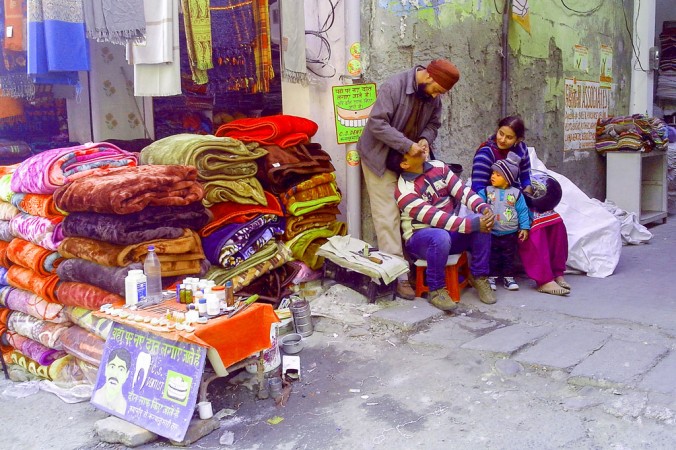
A Bhatra practices on the road side in Gumat bazaar area of the northern city of Jammu, India.
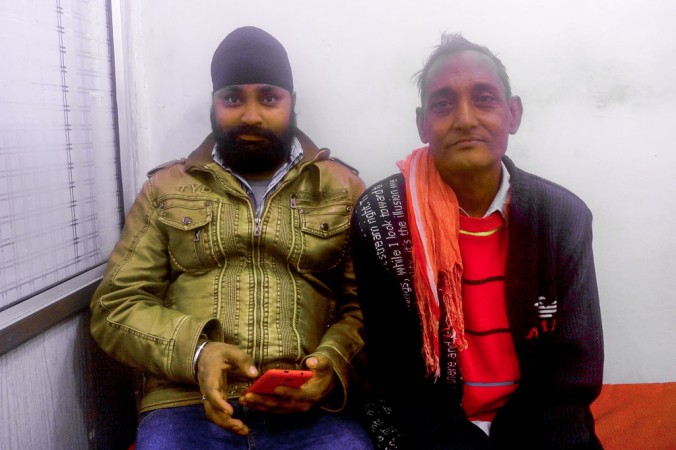
Rattan Singh sits with his client, Vijay Kumar, after removing Kumar’s tooth at his clinic near the Gumat bazaar in the north Indian city of Jammu.
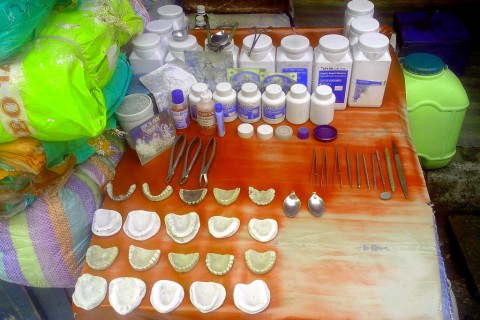
The table of a Bhatra dentist on a roadside in the Gumat bazaar area of the northern city of Jammu in India.
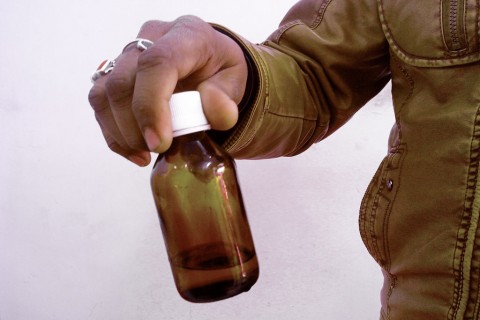
Rattan Singh, a traditional dentist in the northern city of Jammu, holds a bottle with a rare drug prepared almost a century ago by his grandfather.

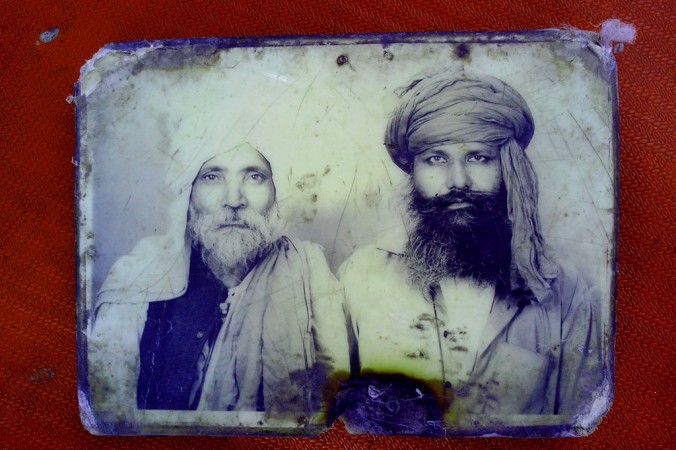
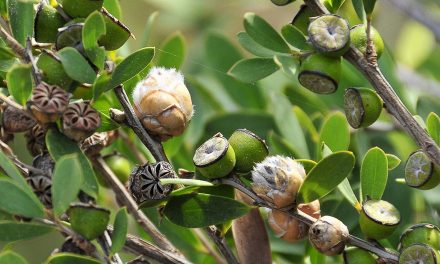

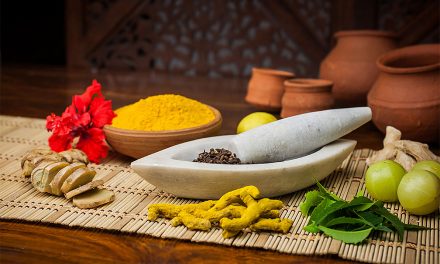






Sir,
How to perform ‘Oil Pulling’ ? Please elaborate more details OR where can I get more info about the right method of practicing ‘Oil Pulling’ ?
Myself already under gone root canal treatment for most of my teeth, as such I am now anxious to practice this Ayurvedic method especially after reading the contents of this article.